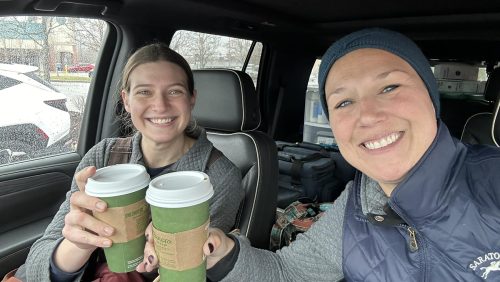It’s been a week now, and I have to say that our Greek hosts here at the Athens Olympics have pulled this behemoth task off far, far better than most of the rest of the world, including me, ever thought they would. At least it certainly seems that way from my perspective at the equestrian events, although I’ll admit I haven’t seen a whole lot else on TV.
But certainly the media buzz, at Markopoulo and at the Main Press Center, where I have spent more time than I’d expected, has been at least grudgingly good.
As always, there are some things we all-knowing media types would have done differently. But the things that have to work are working–the athletic facilities are extraordinary, the transportation (read that mostly as buses) is adequate, the support services are reasonably useful, and the food at the venues and in the press villages is pleasantly inexpensive, even though there isn’t much choice.
The best news is that the security really isn’t much more noticeable that it was in Atlanta or Sydney, or even Barcelona. With my Olympic accreditation, going through and getting out of the airport was a breeze. And with that all-important card hanging from my neck, getting into Markopoulo, the Main Press Center or the media villages is just like going through security at the airport (except that the little dudes in front of the screens aren’t surprised to see a 300- and 500-mm. camera lens pass before them).
But I have to admit that, after a week, going through metal detectors is starting to wear thin. This morning at Markopoulo, they seemed to have turned up the sensitivity. Photographer Jan Gyllensten of Sweden (whose photos you’ve often seen in the Chronicle) routinely removes his belt, since it has a lot of metal on it. Still, the machine buzzes at him. Then I went through, having taken off my photo vest, neck card, and removed my room keys and coins. And I still set it off for the first time. I told Nancy Jaffer, whose articles you read in the Chronicle and elsewhere and who was right behind me, “Jan can take off his belt. But I draw the line at taking off my pants.”
ADVERTISEMENT
Seriously, though, the only overt sign of extra security is the Army guys, carrying real machine guns, and police who are stationed at the entrances and around the periphery of everything. They were all around the cross-country course when I walked it last Monday (mostly looking bored and sleepy). And I nearly ran afoul of one when I went for a run around the Ag. Andreas media compound for the first time, on Wednesday since the first bus to Markopoulo, for the eventing show jumping, wasn’t until 12:30.
I ran out onto a jetty extending about 200 meters into the Aegean Sea, which I eventually figured out was the complex’ northern boundary as it was bisected by a high, wire fence. I passed an Army sentry on my way out to the end. On my way back, he stopped me and asked to see my accreditation. Of course, I hadn’t thought to wear it, and I began to get a little nervous. So he asked if I had my room key. “Ah,” I thought, “yes.” But when I produced it, I realized I’d taken it off the heavy metal key chain and that it had nothing on it that proclaimed it as being a key to a room here. He sized me up, then I guess decided either that I didn’t look like a threat or realized that I couldn’t have gotten in to the compound without a pass. “I’ll wear it the next time,” I promised, and he waved me on. I sure wore it when I went for a run last night.
The thousands (quite literally) of volunteers, clad in aqua-orange-and-white shirts with aqua pants, are almost unfailingly friendly and do their best to be helpful. But as is often the case with volunteers brought in to staff the Olympics (or the World Equestrian Games, for that matter), they’ve received precious little training and haven’t been told anything they don’t absolutely need to know. Nor are very many of them empowered to (or sometimes capable of) making a decision to change something like a bus schedule or photo location. (This was very much the case in Atlanta.) And, I’m afraid, after a few days (or two weeks) that gets just a bit wearying to your average harried media type.
Happily, the only major volunteer snafu I’ve encountered, so far, was on Tuesday night, after the second day of eventing dressage. Photographer Charlie Mann and I actually got our work wrapped up quickly and caught the night’s second-last bus to Ag. Andreas (we usually run to catch the last bus), optimistic that we’d get dinner just a bit earlier and get a few more weeks of sleep than the previous two nights. Until we saw the bus driver turn off the main highway. Soon, we discovered that, yes, he was lost. He stopped, again and again, asking for directions. On the fourth stop, he hailed a man just walking down the street, an encounter complete with the gesticulating and shouting that’s apparently characteristic of the way Greeks communicate. They debated the route for close to five minutes, and then, somehow, we arrived at the other media village where our bus stops en route to Ag. Andreas.
It would have been annoying if it weren’t so comical. But our unscheduled tour of Greece did eventually get us home (I think we were approaching the west coast), a few minutes before the last bus from Markopoulo that we hadn’t taken. At least if we get that driver again, he’ll know the route.














